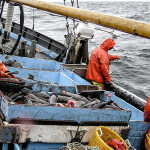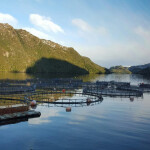Paul Lansbergen is president of the Fisheries Council of Canada, a trade body representing the Canadian fisheries sector.
The world is embarking on international negotiations of a new biodiversity framework. This will include a vision for 2050 and interim targets for 2030. Marine conservation is a hot topic in these negotiations. However, some important facts often get lost in such discussions and we need to remind ourselves and others of these facts.
Part of the problem is that the fisheries sector has fallen short when telling its story. The resulting void has been filled by the sector’s critics. Their view of our world is that we are too aggressive and short-sighted. I say we need to be proud and loud about our sustainability practices.
Fisheries and Oceans Canada reports that 96 percent of Canada’s fish stocks are harvested at sustainable levels. Wow! My parents would consider that a damn good mark. On top of that, Canada’s adoption of independent certification is multiple times higher than the global average. Another point of which we should be proud! Still, despite this, the public assumption is that the ocean and our fish stocks need special protection from us and other threats and pressures. I can’t speak for other human or industrial pressures, but I do, and will continue to, talk about our fisheries.
Fishing activity and marine conservation are not mutually exclusive. A recent academic paper by Dr. Ray Hilborn et al. documents how managed fisheries generally are more abundant and face less fishing pressure than unmanaged fisheries. That was be obvious to those of us in the sector, but this paper helps document and verify it for the public eye. Certainly, Canadian fisheries are in the well-managed cohort and continue to strive for improvements.
FCC and our membership are in favor of marine conservation that aims to improve both environmental and economic sustainability in tandem. After all, we have a vested interest in protecting the resource we rely on. However, government efforts have been criticized for not delivering on the promise of science-based and transparent measures.
The federal government has committed to conserving 25 percent of our waters by 2025 and 30 percent by 2030. The latest proposal for international negotiations appears even more ambitious. Fulfillment of that commitment could have significant impact on ocean and freshwater fisheries. We – government and industry – need to work together to find the win-win solution for marine biodiversity and sustainable fisheries. We can do better than just chasing a number. More legwork is needed to determine where more conservation effort is needed, to identify protection objectives and threats, and to select the best conservation measures that recognize the positive role of fisheries management and consider the socio-economic implications.
I urge all stakeholders in the fisheries industry to speak up and engage with decision makers on the topic of balancing biodiversity protection and marine conservation with economic prosperity. FCC will continue to advocate for transparency and outcomes that maximize benefits for the environment and our industry. Please don’t hesitate to contact me about how we can amplify our efforts to have a valued seat at the conservation table: [email protected]
Photo courtesy of Paul Lansbergen/LinkedIn






